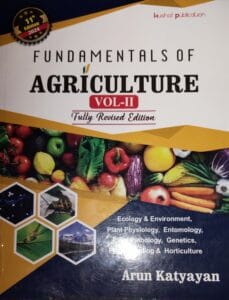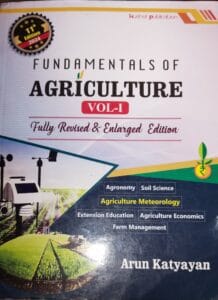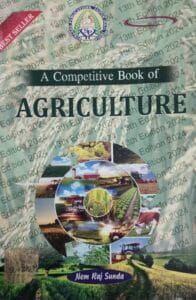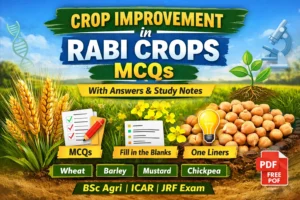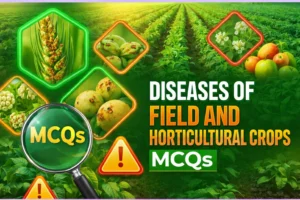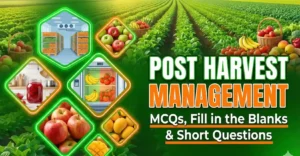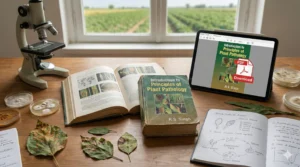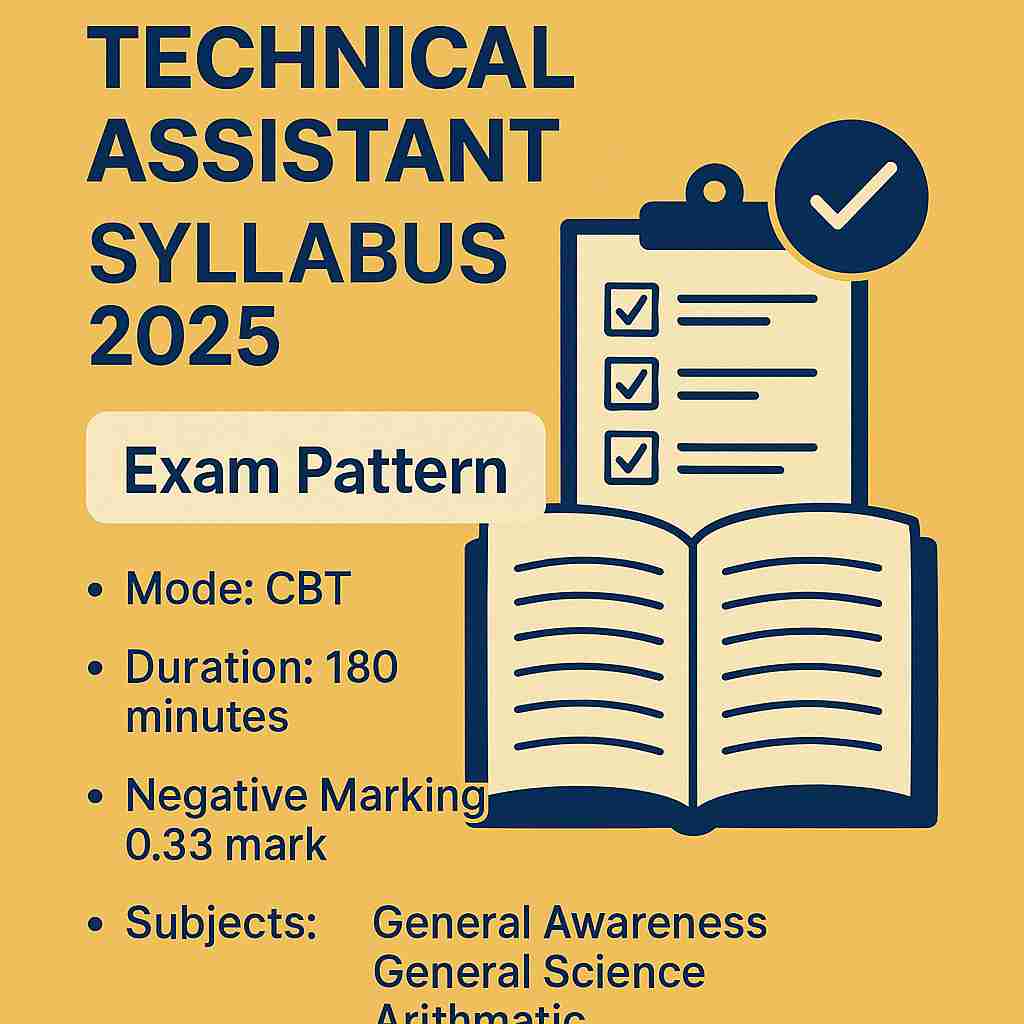
TFRI Technical Assistant Syllabus 2025: Your Roadmap to Success!
Are you aspiring to build a career at the forefront of forestry research? The Tropical Forest Research Institute (TFRI), Jabalpur, under the Indian Council of Forestry Research and Education (ICFRE), offers an incredible opportunity to join its team as a Technical Assistant. With the application window for the TFRI Jabalpur Group ‘C’ recruitment opening very soon, on July 14, 2025, countless candidates like you are gearing up for this prestigious role. But to truly excel and secure one of these coveted positions, understanding the TFRI Technical Assistant Syllabus 2025 is not just important – it’s absolutely crucial.
Highlights from the TFRI Group-C Recruitment 2025
Feature | Details |
Organization | ICFRE-Tropical Forest Research Institute (TFRI), Jabalpur (M.P.) |
Advertisement Date | July 14, 2025 |
Posts Advertised | Technical Assistant (10 posts), Forest Guard (03 posts), Driver (01 post) |
Application Start Date | July 14, 2025 (12:00 AM) |
Application End Date | August 10, 2025 (11:59 PM) |
Technical Assistant Qualification | Bachelor of Science with Botany/Zoology/Agriculture/Forestry/Biotechnology/Chemistry/Environmental Science/Statistics. |
Exam Mode | Computer-Based Examination (CBT) |
Exam Duration | 180 minutes (3 hours) |
Place of Posting | TFRI Jabalpur or Skill Development Centre Chhindwara (transferable within ICFRE). |
TFRI Technical Assistant Notification PDF download
Understanding the TFRI Technical Assistant Exam Pattern 2025
| Feature | Details |
|---|---|
| Mode of Examination | Computer-Based Test (CBT) |
| Medium of Exam | Bilingual – English & Hindi |
| Question Type | Objective Type (Multiple Choice Questions – MCQs) |
| Total Questions | 100 |
| Total Marks | 100 (Each question carries 1 mark) |
| Time Duration | 180 Minutes (3 Hours) |
| Negative Marking | Yes – 0.33 marks will be deducted for each wrong answer |
| Minimum Qualifying Marks | UR: 50% |
📚 Section-Wise Distribution
| Section | Questions | Marks |
|---|---|---|
| General Awareness & Reasoning | 20 | 20 |
| English & General Science | 20 | 20 |
| Arithmetic | 20 | 20 |
| Relevant Subject (Botany / Zoology / Agriculture / Forestry / Biotechnology / Chemistry / Environmental Science / Statistics) | 40 | 40 |
The Detailed TFRI Technical Assistant Syllabus 2025
This is where the rubber meets the road! The TFRI Technical Assistant Syllabus 2025 is meticulously designed to assess your aptitude and knowledge across various domains, particularly in your chosen scientific discipline. Let’s dive deep into each section, so you know exactly what to focus on for your preparation.
1. General Awareness & Reasoning (20 Questions - 20 Marks)
General Awareness:
Current Events: Focus on National and International current affairs, particularly those related to environment, forestry, agriculture, science & technology, and government policies. Given TFRI’s mandate, keep an eye on environmental summits, conservation efforts, and scientific breakthroughs.
Indian History: Broad strokes of significant events, movements, and personalities.
Indian Geography: Emphasis on physical geography, climate, forests, wildlife, rivers, and natural resources of India.
Indian Polity & Constitution: Fundamental rights, duties, directive principles, structure of government (Parliament, Judiciary, President, PM).
Economy: Basic economic concepts, Indian economic overview, important government schemes.
General Science: Everyday observations and experiences related to physics, chemistry, and biology.
Environmental Issues, Ecology & Biodiversity: This is paramount for a forestry institute exam. Understand concepts like ecosystems, food chains, pollution (types, causes, control), climate change, sustainable development, conservation strategies, and relevant laws/acts.
Knowledge of TFRI & ICFRE: Understand their roles, functions, recent initiatives, and organizational structure.
Reasoning:
Verbal Reasoning: Analogies, similarities, differences, word formation, coding-decoding, series completion, logical sequence of words.
Non-Verbal Reasoning: Space visualization, spatial orientation, figural classification, arithmetical number series, non-verbal series.
Analytical Reasoning: Problem-solving, analysis, judgment, decision-making, visual memory, discrimination, observation, relationship concepts (blood relations, directions), arithmetical reasoning.
Expert Advice:
For General Awareness, consistency is key. Read newspapers daily (especially the editorial and science/environment sections). For Reasoning, practice is your best friend. Solve a variety of puzzles and questions to improve speed and accuracy. Don’t just solve; understand the logic behind the solutions.
2. English & General Science (20 Questions - 20 Marks)
This section tests your proficiency in the English language and your foundational understanding of science.
General English:
Vocabulary: Synonyms, antonyms, one-word substitutes, homonyms.
Grammar: Error detection, sentence correction, fill-in-the-blanks, active/passive voice, direct/indirect speech, tenses, prepositions, conjunctions.
Sentence Structure: Rearrangement of sentences, paragraph completion.
Idioms & Phrases: Understanding common idiomatic expressions.
Reading Comprehension: Ability to understand a given passage and answer questions based on it.
General Science:
This part largely covers the fundamentals of Physics, Chemistry, and Biology (often up to 10th-grade level).
Physics: Units and measurements, motion, force and laws of motion, work, energy and power, gravity, light, sound, electricity, magnetism.
Chemistry: States of matter, atoms and molecules, chemical reactions and equations, acids, bases and salts, metals and non-metals, carbon and its compounds.
Biology: Basic life processes, human body systems (digestive, circulatory, respiratory, nervous, excretory, reproductive), plant life, animal kingdom, diseases and their prevention.
Expert Advice:
For English, read widely, focus on grammar rules, and practice comprehension passages. For General Science, revise your NCERT textbooks (Class 7-10) thoroughly. Pay special attention to topics that might have an environmental or biological link.
3. Relevant Subject (40 Questions - 40 Marks)
If your background is Forestry/Agriculture/Environmental Science:
Forestry: Silviculture, forest mensuration, forest ecology, forest products utilization, forest protection (pathology, entomology), agroforestry, social forestry, forest policy and law, remote sensing & GIS applications in forestry, wildlife management, biodiversity conservation.
Agriculture: Agronomy, soil science, horticulture, plant breeding, plant pathology, agricultural economics, extension.
Environmental Science: Ecology, pollution (air, water, soil, noise), waste management, environmental impact assessment (EIA), climate change, renewable energy, environmental laws and policies, natural resource management.
If your background is Botany/Zoology:
Botany: Plant physiology, plant anatomy, plant taxonomy, plant pathology, microbiology, genetics, plant breeding, biotechnology (especially plant-based). Focus on forest flora and plant diseases.
Zoology: Animal classification, animal physiology, genetics, ecology, entomology (insect pests of forests), wildlife biology, conservation. Focus on forest fauna and wildlife management principles.
If your background is Biotechnology:
Molecular biology, genetic engineering, plant tissue culture, microbiology, bioinformatics, environmental biotechnology, applications in forest tree improvement, disease resistance, and bioremediation.
If your background is Chemistry:
Organic, Inorganic, Physical Chemistry fundamentals. Environmental Chemistry (pollutants, water quality, soil chemistry). Biochemistry (relevant to plant metabolism, soil nutrient cycles). Analytical techniques.
If your background is Statistics:
Descriptive statistics (measures of central tendency, dispersion), probability theory, statistical inference (hypothesis testing, confidence intervals), correlation and regression, experimental design (ANOVA), sampling techniques, data analysis using statistical software. Focus on applications in biological and environmental research data.
Expert Advice:
Revisit your graduation-level textbooks and notes thoroughly. Don’t just study for definitions; understand concepts and their practical applications, especially in the context of forestry, agriculture, and environmental issues. Look for how your specific subject contributes to these fields. For instance, a Chemistry graduate should focus on soil chemistry, water pollution, and the chemistry of forest products. A Statistics graduate should review how statistical methods are applied in forest surveys and ecological studies.
General Instruction about this post
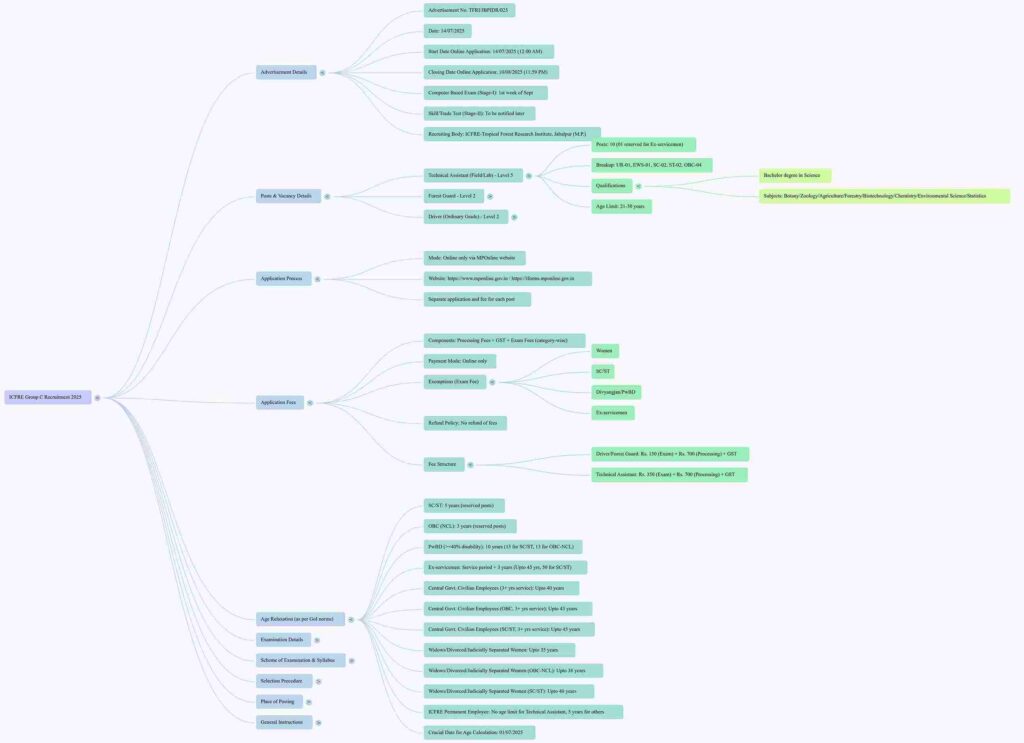
Best books for Technical Assistant Exam
Arun Katyayan Agriculture Book Volume-1 PDF Download with latest edition
Introduction of Arun Katyayan Agriculture Book Vol-1 If you’re a...
Read MoreRelated exams syllabus
Latest Syllabus | Download Here |
IBPS Agriculture Filed Officer | |
NABARD GRADE A | |
Food Corporation of India (FCI) | |
RAEO | |
RHEO | |
Food Inspector | |
IFFCO AGT | |
MP PAT | |
UPSSSC AGTA |
Click to Join Our Free WhatsApp Group and YouTube for Agriculture Updates!
Get daily updates, free study material, and the latest schemes, and connect with other agriculture students and farmers.
Common question about this exam
Only Indian citizens are eligible to apply. Online applications are specifically invited from “Indian Nationals” for the advertised posts.
Yes, if a candidate wishes to apply for more than one post, they must submit a separate online application form with the required fee for each post
Generally, a person who has entered into or contracted a marriage with a person having a living spouse, or who, having a spouse living, has entered into or contracted a marriage with any person, shall not be eligible. However, ICFRE-TFRI may grant exemptions if satisfied that such a marriage is permissible under the personal law applicable and there are other valid grounds
The candidates selected will be posted at ICFRE-Tropical Forest Research Institute, Jabalpur, or its Centre, ICFRE-Skill Development Centre, Chhindwara. However, all posts carry liability to serve any of the Institutes/centers under ICFRE anywhere within India
Rwlated posts
👉Top 100 Crop Improvement in Rabi Crops MCQs + Fill in Blanks + One Liners (Exam Special)
Crop improvement in rabi crops MCQs is one of the...
Read More👉 Diseases of Field and Horticultural Crops MCQs True/False, fill in the blanks (With Answers for BSc Agriculture)
Diseases of field and horticultural crops are one of the...
Read More80+ Post Harvest Management MCQs, Fill in the Blanks & Short Questions (Exam-Oriented)
Post harvest management is one of the most important units...
Read MoreR.S. Singh Plant Diseases Book PDF: The “Gift” for Plant Pathology Students
Table of Contents If you are a BSc Agriculture student,...
Read More
